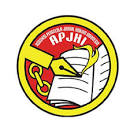Strengthening and Empowering Smart Parenting in Communities to Realize Gender Sensitivity and Equity in Families
Keywords:
SDGS, Smart Parenting, Gender and LawAbstract
In order to support the SDGs program which is also relevant to Presidential Instruction No. 9 of 2000 concerning Gender Mainstreaming (PUG), various efforts are needed by the government together with the community to practice social habitus to uphold gender equality and justice. Parents (Parenting) provide affection, protection, socialization and so on. This parenting role provides an overview of parents ideally carrying out parenting roles with knowledge of educating children, social insight, PUG insight and gender equality as well as legal insight. Moving from this condition, the community service team sees the importance of strengthening and empowering the parenting community to be given insight and knowledge of gender sensitivity and various laws and regulations related to the role of parents and children's rights in the family. This is assumed to be an effort to take preventive action against events and legal consequences so that they can be prevented as early as possible. Partnering with Ranggi Literacy House which carries out various parenting strengthening in communities that are marginalized communities. the implementation of community service is carried out by providing insight into gender sensitivity, socialization and gender justice education sociologically in the practice of habitus and combining this legal insight where this is a basic right for children to receive legal protection.
Downloads
References
Baharun, H., & Finori, FD (2019). Smart Techno Parenting: Alternative Child Education in the Digital Technology Era. Tatsqif Journal, 17(1), 52–69. https://doi.org/10.20414/jtq.v17i1.625
Cabrera, N. J., Fitzgerald, H. E., Bradley, R. H., & Roggman, L. A. (2014). The ecology of father-child relationships: An expanded model. Journal of Family Theory & Review, 6(4), 336–354. https://doi.org/10.1111/jftr.12054.
Casmini. (2007). Emotional Parenting. Yogyakarta: Nuansa Aksara.
Dwiyanti Retno. The Role of Parents in Children's Moral Development, Proceedings of the 2013 National Parenting Seminar.
Fakih, Mansour. (1996). Gender Analysis and Social Transformation. Yogyakarta: Pustaka Pelajar.
Hammer, TJ, &, PH 2003. Parenting in contemporary society third edition. Boston: Allyn & Bacon.
Hayati, F., & Febriani, A. (2019). Answering the Challenges of Working Mother Parenting: Validation of the “Smart Parenting” Module to Increase Parental Self-Efficacy. Gadjah Mada Journal of Professional Psychology (GamaJPP), 5(1), 1–14. https://doi.org/10.22146/gamajpp.48582
Jailani, MS (2014). Family Education Theory and Parental Responsibility in Early Childhood Education. Nadwa, Journal of Islamic Education, 8(2), 246–260. https://doi.org/10.57251/hij.v2i1.864
Kagitcibasi, C. (2013). Autonomous-Relational Self: A New Synthesis. European Psychologist, 18(1), 36–46. https://doi.org/10.1027/1016-9040/a000076.
Lamb, M. E. (Ed.). (2010). The role of the father in child development (5th ed.). John Wiley & Sons, Inc.
Maunur.2011, Understanding parenting patterns according to experts, definitions, examples, types. Wordpress.com
Muallifah. (2013). Storytelling as a Parenting Method for Developing Early Childhood Intelligence. Psikoislamika - Journal of Islamic Psychology, 10(1), 6
Novianti, R., Maria, I., & Hukmi. (2022). The Use of Smart Parenting Android Applications to Improve Parental Knowledge about Bullying. Jurnal Obsesi: Jurnal Pendidikan Anak Usia Dini, 6(5), 4309–4320. https://doi.org/10.31004/obsesi.v6i5.1874
Qomariah, D. (2019). Public Perception of Gender Equality in the Family. PLS Scientific Scholars Journal, 4(2), 52–58.
Rozana, AA, Wahid, AH, & Muali, C. (2017). Smart Democratic Parenting in Building Children's Character. Al-Athfal Journal of Child Education, 4(1), 1–16.
Septiani, P., Zidan, M., & Dinar. (2023). Implementation of Gender-Equitable Education in Families and Communities. Proceedings of the National Seminar on Non-Formal Education, 1, 1–8.
Sunderland, Margot, The science of Parenting, Practical guidance on sleep, crying, play and building emotional wellbeing for life. DK. United Kingdom. 2006.
Thalib, SB 2010. Educational Psychology Based on Applied Empirical Analysis. Jakarta: Kencana Prenada Media Group.
Yanti, D., & Al 'Afuw, NF (2022). Smart Parenting in Sharpening Early Childhood Al-Quran Memorization. E-Journal Aksioma Al-Asas, 3(1), 48–68. https://doi.org/10.55171/jaa.v3i1.640
Zakaria, M. (2021). Improving Parental Knowledge Through the Smart Parenting Program with the Hypnoparenting Approach Regarding Learning Independence, Learning Styles and Students' Mathematical Resilience in the Digital Era. Geomath, 2(1), 61–89. https://doi.org/10.55171/geomath.v2i1.776–36. https://doi.org/10.32734/alj.v3i1.18967.
Downloads
Published
How to Cite
Issue
Section
License
Copyright (c) 2025 Harmona Daulay, Detania Sukarja

This work is licensed under a Creative Commons Attribution-ShareAlike 4.0 International License.











